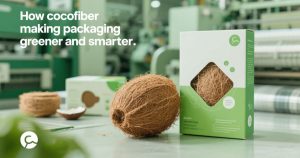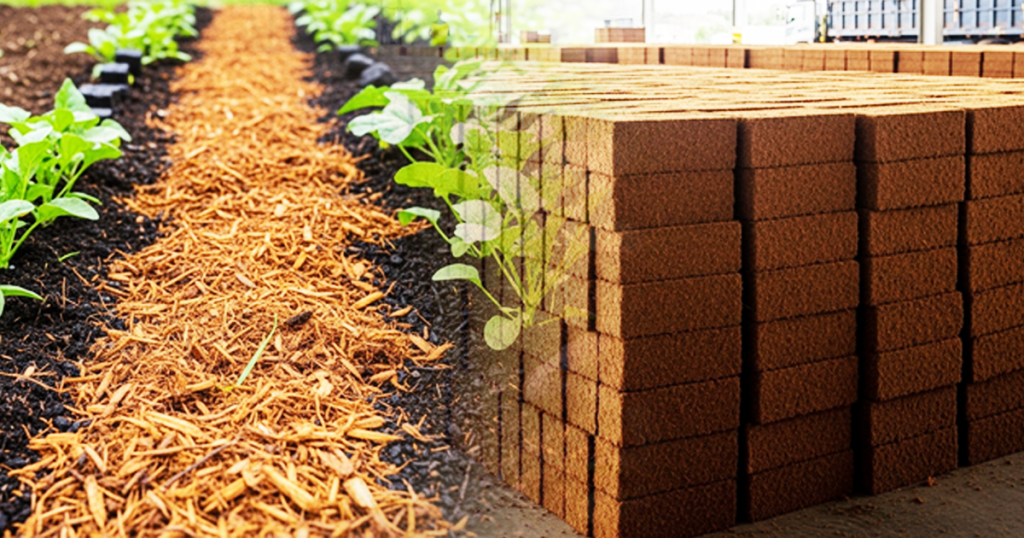A Growing Demand for Sustainable Substrates
In recent years, cocopeat powder has emerged as a key player in the global horticulture and agriculture sectors. This fibrous byproduct of coconut husks, once discarded as waste, is now a highly sought-after growing medium. The surge in demand reflects broader environmental concerns and a global push toward sustainable farming.
Cocopeat, also known as coir pith or coir dust, is prized for its moisture retention, aeration, and biodegradability. These qualities make it an eco-friendly alternative to peat moss, which is increasingly scrutinized for its ecological footprint. As environmental regulations tighten, industries and growers are turning to cocopeat as a viable and ethical solution.
Major suppliers are witnessing unprecedented growth as demand spikes from both traditional markets and emerging economies. Countries like India, Sri Lanka, and the Philippines longtime producers of coconut products are scaling production to meet export needs.
Market Expansion and Global Trade Dynamics
According to recent trade data, the export of cocopeat powder has grown by over 15% annually over the last five years. This growth is primarily driven by its application in commercial agriculture, hydroponics, and even mushroom cultivation. The powder form of cocopeat is especially in demand due to its ease of transport and longer shelf life.
International buyers include greenhouse operators, landscape contractors, and home garden suppliers across Europe, North America, and the Middle East. These regions are rapidly adopting cocopeat not only for its agronomic benefits but also for its contribution to carbon-neutral supply chains. Suppliers have responded by refining processing technologies to meet international quality standards.
Many exporters are investing in advanced drying, sieving, and packaging systems. The aim is to deliver cocopeat powder with consistent particle size, low EC (electrical conductivity), and balanced pH levels. These parameters are crucial in high-yield farming systems, especially where soil control is vital.
Technological Innovation Among Suppliers
The cocopeat industry is no longer defined by small-scale operations and manual processing. Instead, it is becoming increasingly mechanized and tech-driven. Automation in washing, drying, and compressing has significantly improved the consistency and scalability of cocopeat powder production. Research institutes are also collaborating with manufacturers to optimize the material’s properties for different climatic and crop-specific needs.
In some advanced facilities, sensors are integrated to monitor moisture content during the drying phase. This real-time data ensures uniformity, which is critical when the end-use involves hydroponics or seed starting. Furthermore, blockchain is being explored to enhance traceability, helping suppliers certify the organic origin of their cocopeat.
These technological shifts are enabling smaller producers to compete in international markets. With proper investment and quality control, even mid-scale operations are now entering global supply chains, creating a more diverse and competitive market.
Environmental and Economic Implications
From an environmental standpoint, the rise of cocopeat suppliers represents a shift toward resource efficiency and circular economies. Instead of discarding coconut husks as waste, communities are transforming them into value-added products. This not only reduces landfill burden but also generates income for rural economies.
The economic impact is substantial, particularly in coconut-producing regions. Cocopeat processing has created new jobs in manufacturing, logistics, and quality control. Moreover, international demand has encouraged governments to develop supportive policies and export incentives.
However, researchers caution that sustainability must remain central as the industry scales. There are concerns about water usage in the washing process and the potential overharvesting of coconut husks if demand continues unchecked. Ongoing research focuses on water recycling methods and optimizing husk-to-peat conversion ratios.







